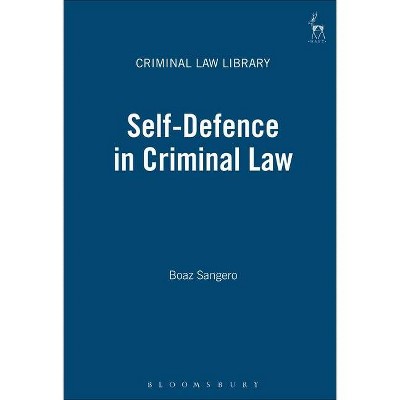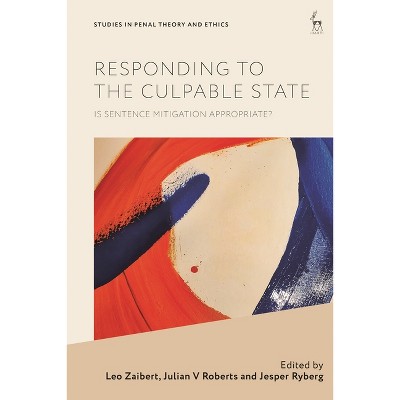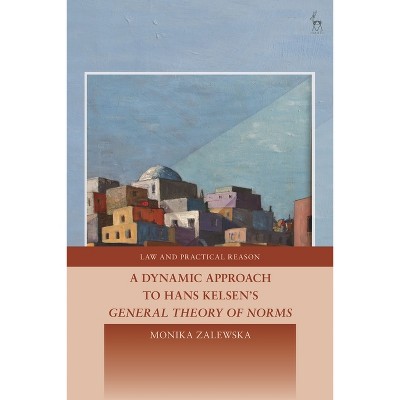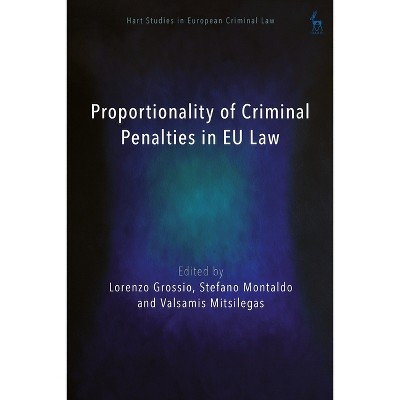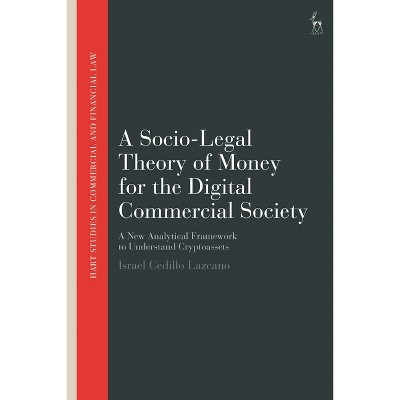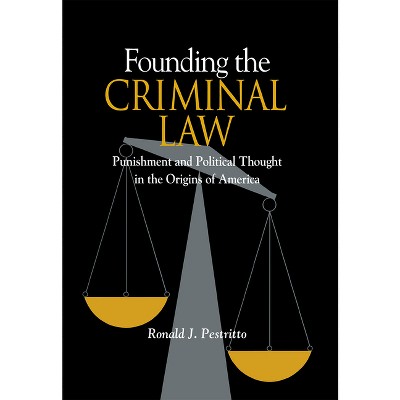Sponsored

Central Issues in Criminal Theory - by William Wilson (Paperback)
$51.95
In Stock
Eligible for registries and wish lists
Sponsored
About this item
Highlights
- Coercive rules and their implementation are, in liberal democratic societies at least, subject to ethical constraints.
- About the Author: William Wilson is a Professor of Criminal Law at Queen Mary, University of London.
- 384 Pages
- Freedom + Security / Law Enforcement, Criminal Law
Description
About the Book
This book questions whether one of the tasks of criminal theory is to set goals and identify deficiencies in order to improve rules and procedures.Book Synopsis
Coercive rules and their implementation are, in liberal democratic societies at least, subject to ethical constraints. The state's moral authority requires these constraints to be both cogent and effectively realised in doctrine. In short, the enterprise of subjecting individuals to coercive rules must be consistent with the delivery of criminal justice. Contemporary criminal theory is much exercised by the apparent contradictions and ambiguities characterising criminal law doctrine. Is this an inevitable part of the territory leading us to question the very possibility of criminal law delivering justice? Or, as the author prefers, is criminal justice an achievement in which one of the tasks of criminal theory is to set goals and identify deficiencies in a constant effort to improve the form and content of rules and procedures? Informed by this premise the book explores some of the key questions in criminal theory, addressing first the ethics of criminalisation and punishment. It continues with an examination of the structure of criminal liability with its emphasis on separating consideration of the objective conditions of wrongdoing from the features which make a person responsible for it. Finally it examines attempts and accessoryship with a view to exploring the doctrinal tensions which may arise when competing justifications for criminalisation and punishment collide. The book gives an account of the present state of criminal theory in an accessible style which will welcomed by those embarking upon courses in advanced criminal law and criminal theory, teachers, and more generally by practitioners and scholars.Review Quotes
"...astounding wealth of arguments discussed and the astuteness and brilliance of the analysis..." --Criminal Law Forum
"Wilson has produced a book that is relatively small but that addresses the basic questions in a logical and coherent manner. Indeed, one of the author's considerable strengths is his ability to explain particularly intricate and often obscure points in simple, comprehensible language. The way in which each chapter begins with a general introduction to the topic, identifying the important issues, is helpful in this regard." --Times Higher Education Supplement "Wilson's book is a thoughtful contribution to the developing field of theoretical writing about the criminal law." --Modern Law Review "In this engaging, well-written book, William Wilson explores the classic internal questions thrown up by criminal law doctrine. These include the principles underlying the decision to criminalise some behaviour and the nature of punishment, as well as the issues identified as central by many writers since Glanville Williams first published Criminal Law: The General Part 50 years ago." --Law Quarterly Review "The book is well-written, the author has read widely, and the explanation of the positions of the commentators is very good. . . . In sum, the book provides a decent explanation of the position of theory in academic Criminal Law at the start of the twenty-first century, it could be used in undergraduate courses on Criminal Law and it is suited to be a textbook on more advanced, more theoretical, Criminal Law modules. It is also an exemplar of the coming of age of theoretical perspectives in Anglo-Welsh Criminal Law." --The Law TeacherAbout the Author
William Wilson is a Professor of Criminal Law at Queen Mary, University of London.Dimensions (Overall): 8.4 Inches (H) x 5.4 Inches (W) x .8 Inches (D)
Weight: 1.05 Pounds
Suggested Age: 22 Years and Up
Number of Pages: 384
Genre: Freedom + Security / Law Enforcement
Sub-Genre: Criminal Law
Publisher: Bloomsbury Publishing PLC
Theme: General
Format: Paperback
Author: William Wilson
Language: English
Street Date: November 12, 2002
TCIN: 85254229
UPC: 9781841130620
Item Number (DPCI): 247-67-7708
Origin: Made in the USA or Imported
If the item details aren’t accurate or complete, we want to know about it.
Shipping details
Estimated ship dimensions: 0.8 inches length x 5.4 inches width x 8.4 inches height
Estimated ship weight: 1.05 pounds
We regret that this item cannot be shipped to PO Boxes.
This item cannot be shipped to the following locations: American Samoa (see also separate entry under AS), Guam (see also separate entry under GU), Northern Mariana Islands, Puerto Rico (see also separate entry under PR), United States Minor Outlying Islands, Virgin Islands, U.S., APO/FPO
Return details
This item can be returned to any Target store or Target.com.
This item must be returned within 90 days of the date it was purchased in store, shipped, delivered by a Shipt shopper, or made ready for pickup.
See the return policy for complete information.







